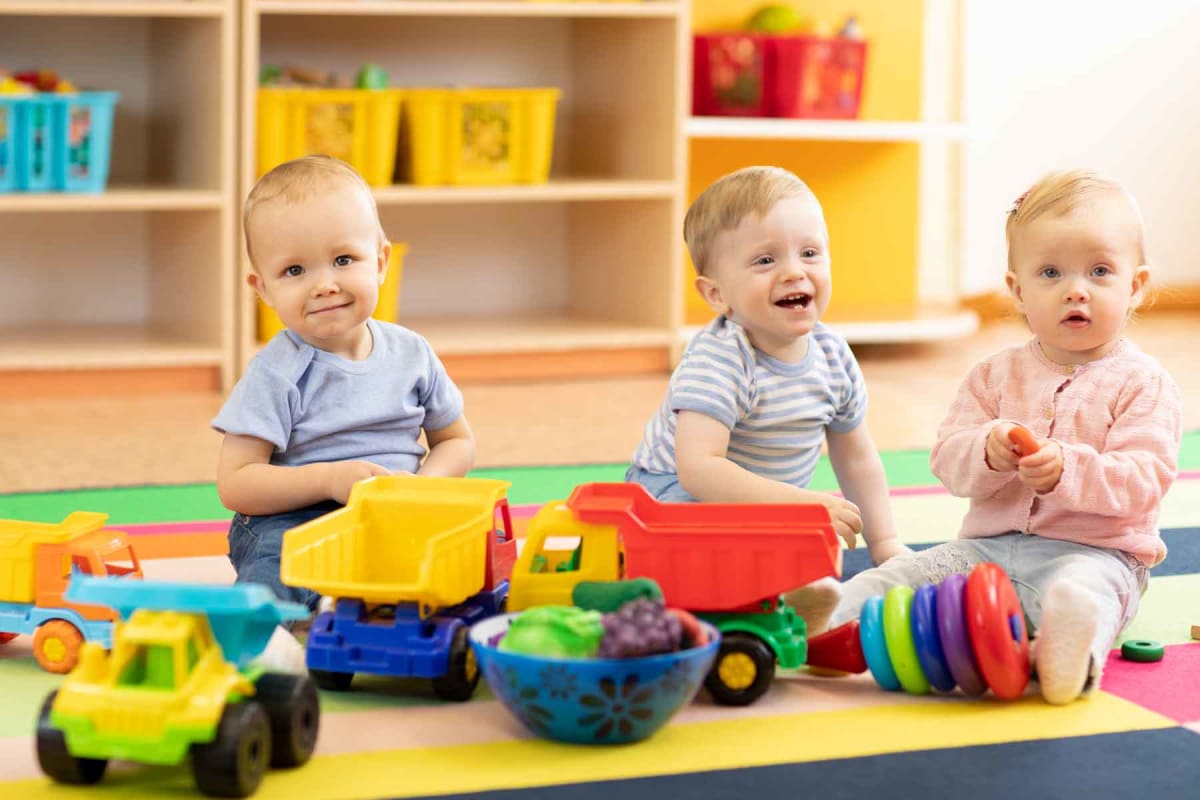
In-home Daycare Requirements
In-home Daycare Requirements
What are the requirements for in-home daycare?
Starting an in-home daycare can be a rewarding way to care for children while running your own business. However, you must meet specific requirements to operate legally and safely. This guide breaks down the standards and requirements you need to meet to open and maintain a licensed in-home daycare.
| Requirement | Details |
|---|---|
| Age and education | 18+ years old; high school diploma or GED |
| Licensing and training | CPR, first aid, child abuse prevention training; orientation |
| Background checks | Background checks and fingerprinting for all adults in the home |
| Health and safety | Childproof home; adequate indoor / outdoor play areas |
| Ratios | State limits on number of children and child-to-adult ratios |
| Health records | Current immunization records for children and provider |
| Documentation | Clear policies, attendance, emergency contacts, and incident reports |
| Landlord / HOA approval | Written permission if renting or in an HOA |
| Inspections and renewals | Regular state inspections; renew license and training as required |
Age and education
You must be at least 18 years old to open an in-home daycare in most states. Many states require at least a high school diploma or GED. Some may ask for additional early childhood education or training, especially if you plan to care for more children.
Licensing and training
Contact your state's child care licensing agency to start the process, which includes these steps:
Complete required training in CPR, first aid, and child abuse prevention.
Attend a licensing orientation and fill out an application.
Pay any necessary fees.
Keep your certifications up to date with regular renewals.
Background checks
All adults living or working in the home must pass background checks and fingerprinting. This step helps ensure a safe environment for children. Submit your fingerprints and any required documents to your state's licensing office before you begin caring for children.
Health and safety
The number one priority of any caregiver should be the wellbeing of the children they care for. Take the following steps to make sure your home is a safe environment:
Childproof your home by locking away harmful substances, covering outlets, and installing safety gates.
Provide enough indoor and outdoor play space for each child.
Keep your home clean and well-maintained.
Make sure any food you serve is free of allergens like peanuts.
Prepare emergency plans and practice fire and disaster drills regularly with children and staff.
Ratio of children to adults
Follow your state's rules for the number of children you can care for at once, usually between 4 to 12. Most states set limits based on the ages of the children and the number of adults present. Always maintain proper child-to-adult ratios to ensure safety and quality care.
Health records
Keep up-to-date immunization records for every child in your care, and maintain your own health and medical clearance as required by your state. Have a plan for managing illnesses, administering medication, and handling allergies or special health needs.
Documentation
Write clear policies for discipline, meals, daily routines, and emergencies. Share these with parents before they enroll their children. Keep accurate attendance records, emergency contacts, and incident reports. Update your paperwork regularly to stay organized and meet licensing requirements.
Landlord / HOA Approval
If you rent your home or live in an HOA community, get written permission from your landlord or review your HOA's rules. Some states protect your right to run a daycare regardless of what your landlord or HOA says, but you should still check local policies and notify relevant parties beforehand.
Inspections and renewals
Prepare for regular inspections by your state licensing agency. Inspectors will check your home for safety, cleanliness, and compliance with regulations. Renew your license and training as required, and address any issues promptly to keep your daycare running smoothly.
By following these requirements, you'll create a safe, legal, and welcoming in-home daycare that families can trust.

Home daycare FAQs
Can you run a daycare in a rental home?
Yes, you can run a daycare in a rental home in many states, but the rules depend on where you live. For example, in California, landlords cannot stop you from operating a licensed family child care home, even if your lease says, "no businesses."
Landlords cannot evict you, refuse to rent to you, or raise your rent just because you run a licensed daycare. They also cannot require you to buy liability insurance, though you should have it for your own protection. Always check local laws and notify your landlord before opening a daycare in a rental property.
How much do home daycares make?
Home daycare providers across the U.S. earn $14 to $19 per hour on average. Depending on how many children you care for and your location, this can amount to an average income of $500 to $2,000 per week.
Can an HOA regulate a daycare?
Yes, an HOA can regulate a daycare, but their authority depends on state laws and their own governing documents. In some states, laws prevent HOAs from completely banning licensed home-based daycares, though they can still enforce reasonable rules about noise, traffic, hours, and use of common areas.
HOAs may require you to follow their approval process, comply with local and state licensing, and limit the number of children or hours of operation. Check your state's laws and your HOA's rules before starting a daycare in an HOA community.